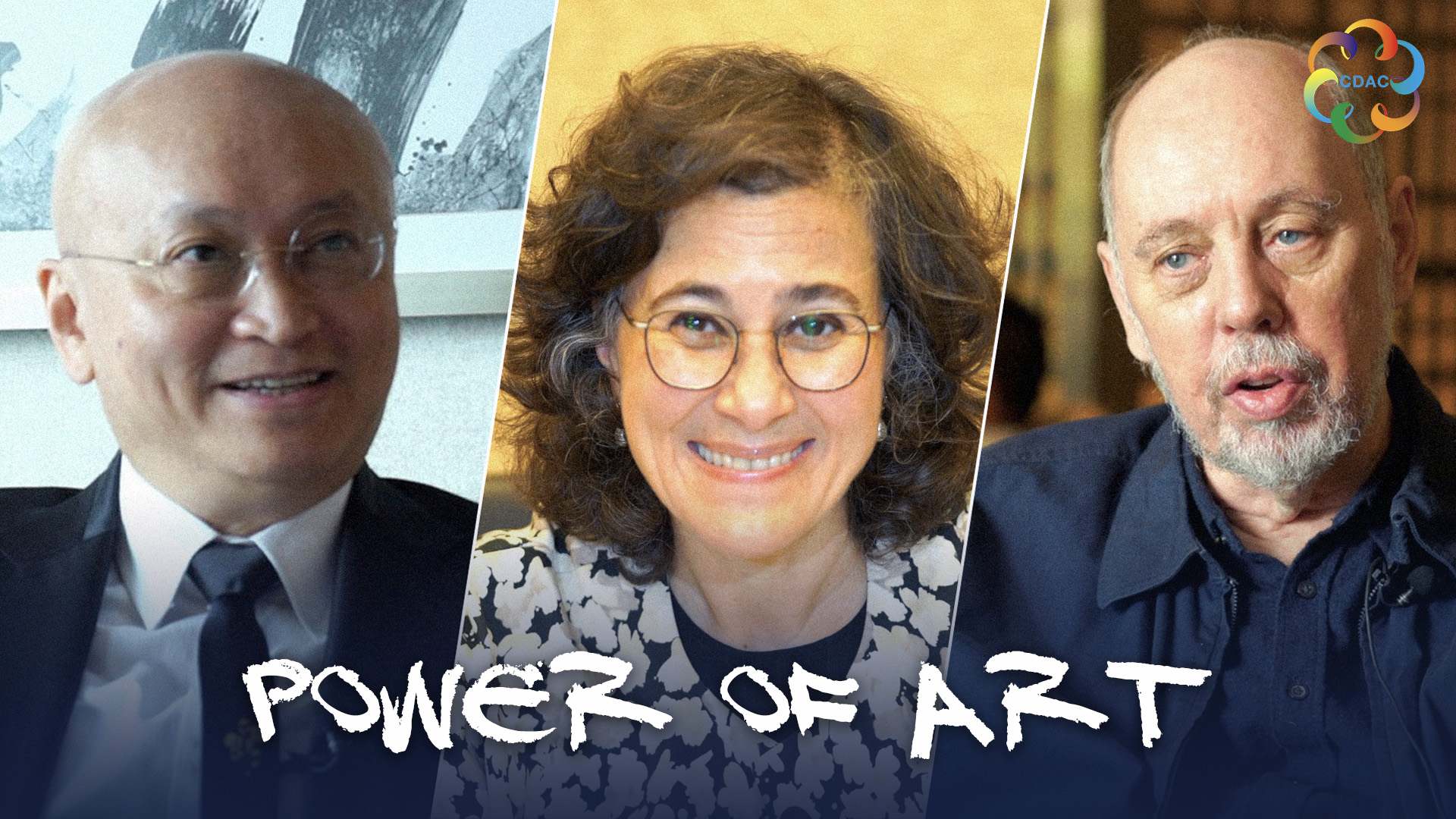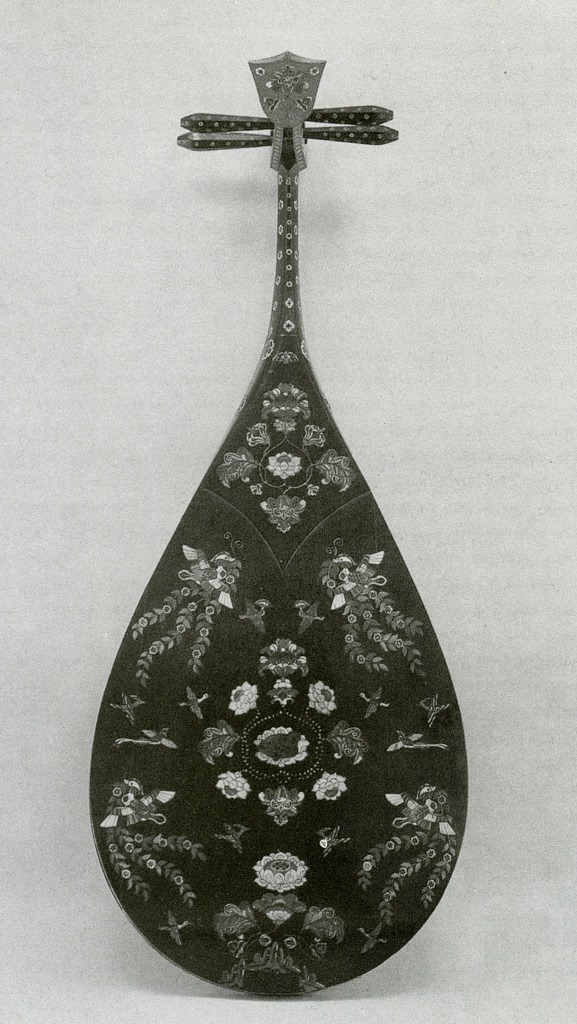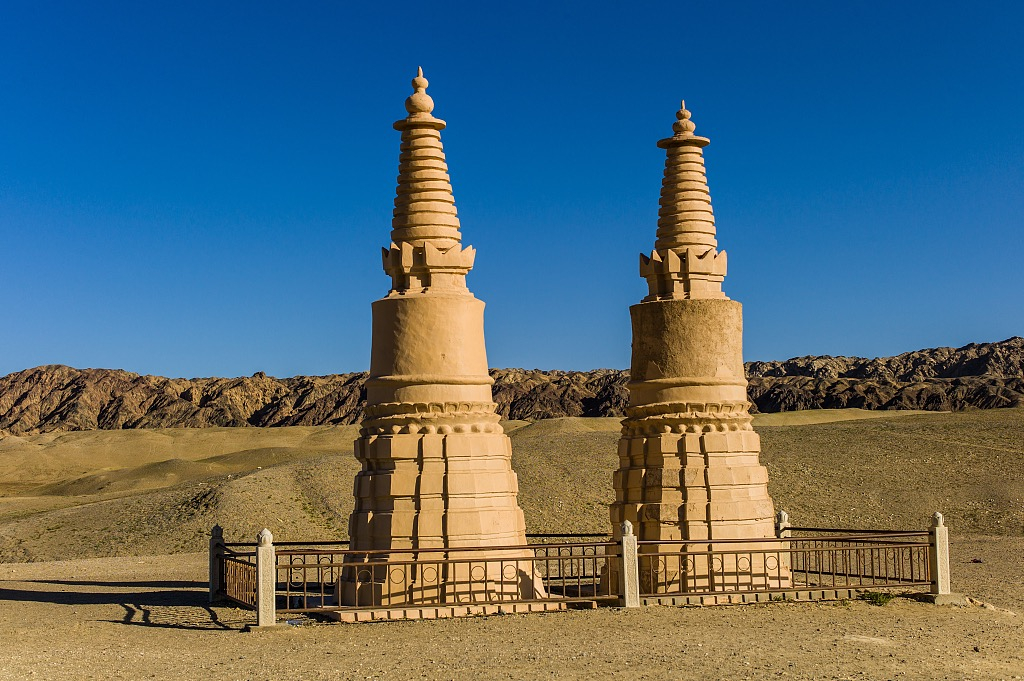
Art
23:07, 18-May-2019
Can art revive its magic power to bridge geopolitical differences?
By Wang Xiaonan
04:11

There is something reassuring about art, especially pieces that come from centuries or millennia of tradition. In a turbulent world, music and the fine arts can soothe inner turmoil and bring people together. That's why specialists and experts are trying to promote the ancient arts of their respective countries and cultures during the Conference on Dialogue of Asian Civilizations.
CGTN reporter Wang Xiaonan interviewed them to learn more about how intercultural exchange, especially among lesser known countries in Asia, can facilitate the conversation on peace.
Jean During, an ethnomusicologist specializing in Central Asian traditional music and senior emeritus research at the French National Centre for Scientific Research
We do not know many things about Central Asia, especially antiques and music, which remain to be discovered. But there is a very rich music legacy in Central Asia. Some musical instruments were invented in Central Asia, for instance, near northern Tajikistan, and then spread along the Silk Road, to China, Japan, Iran and the Arab world and up to Europe.
In the 14th century, we have a description written in Persian on the musical instruments of China, Mongolia and Turkey. In India, during that time, music was transformed by people coming from Iran, Bokhara – now in Uzbekistan. And in Istanbul, music was much influenced by Middle Eastern musicians.

The four-stringed lute which originated from Iran was given by the Tang Dynasty government of China to a visiting Japanese envoy as a present in the late seventh century or the early eighth century. /VCG Photo
The four-stringed lute which originated from Iran was given by the Tang Dynasty government of China to a visiting Japanese envoy as a present in the late seventh century or the early eighth century. /VCG Photo
However, the exchanges in music decreased after the 18th century, partly due to the political situation. Antiquity might be physically challenging to travel, but not music. Music is relevant in keeping civilization alive. You can record any music in the world and even show it in videos or films, but music is something that must be refreshed every time. Preservation is not enough, as promotion is also important.
Musicians around the world blend different traditions, but they don't always mix well. Like in computer programs, sometimes there are bugs, but in most cases, it can work properly.
Ning Qiang, professor at the School of History, Capital Normal University
Art is a way to soften contradictions and melt the ice of differences. The common will of people on the earth is to look for happiness and a good life instead of fighting or arguing with each other. We come to share experiences and cultural accomplishment of different countries in the region.
The theory of clash of civilizations has its merit - that is to help us understand the differences, but it also has limitations by putting too much attention on the "clash" side, instead of the "peace" side. The history of Asian civilizations shows us that the mainstream is peace and people's wish for beauty, harmonious lifestyle and living together.
The Conference on Dialogue of Asian Civilizations is a way to bring neighbors together and form an Asian art community. In such a way, we would have a more harmonious community, and neighbors would learn from each other and appreciate each other's cultural traditions.

A cultural heritage site in Dunhuang, northwest China's Gansu Province /VCG Photo
A cultural heritage site in Dunhuang, northwest China's Gansu Province /VCG Photo
Nada Al-Nashif, assistant director-general for Social and Human Sciences at UNESCO
When cultural diversity is not sufficiently understood, when the power to enrich culture is resisted, when there is fear, discrimination and racism in the world, it is hard for us to get along and understand.
There's no inevitability about conflicts. They are entirely manmade. What we need to do is to understand better what brings us together, as we keep saying. We have to speak more for people who do not share our value systems. We are at risk as we see a lot of pushbacks on people's fundamental freedoms, a lot of pushbacks on the value system that created the UN in 1945.
We have to be very aware that the value system is under threat. This is the same battle we are all fighting. We have a lot to learn from Asia. This is why we are here and why we are investing so much in understanding, whether it is the ancient Silk Road or modern interpretations of what ASEAN or other economic blocs are trying to do. We have to try to understand what brings people prosperity and how we can grow together in a mutually reinforcing way.
Videographer: Wu Chutian
Video editor: Gao Yue

SITEMAP
Copyright © 2018 CGTN. Beijing ICP prepared NO.16065310-3
Copyright © 2018 CGTN. Beijing ICP prepared NO.16065310-3